Filter by
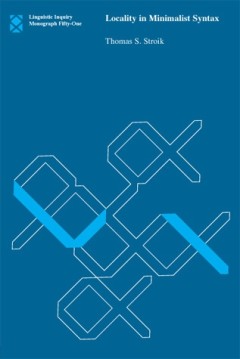
Locality in Minimalist Syntax
Providing a reanalysis of minimalist syntax, Thomas Stroik considers the optimal design properties for human language.OCLC-licensed vendor bibliographic record.
- Edition
- -
- ISBN/ISSN
- 9780262255349
- Collation
- 1 online resource (x, 149 pages).
- Series Title
- -
- Call Number
- -
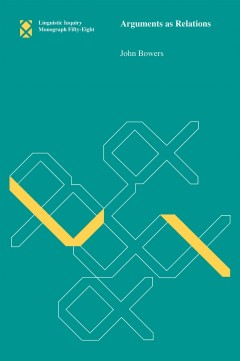
Arguments as Relations
Bowers proposes a radically new approach to argument structure that has the potential to unify data from a wide range of different language types in terms of a simple and universal syntactic structure.OCLC-licensed vendor bibliographic record.
- Edition
- -
- ISBN/ISSN
- 9780262289252
- Collation
- 1 online resource (xii, 239 pages) :illustrations.
- Series Title
- -
- Call Number
- -
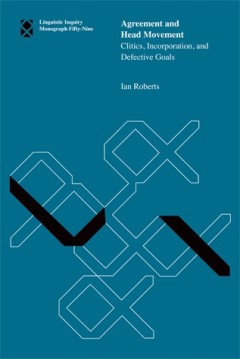
Agreement and Head Movement: Clitics, Incorporation, and Defective Goals
Here, Ian Roberts explores the consequences of Chomsky's conjecture that head-movement is not part of the narrow syntax the computational system that relates the lexicon to the interfaces.OCLC-licensed vendor bibliographic record.
- Edition
- -
- ISBN/ISSN
- 9780262289726
- Collation
- 1 online resource (vi, 290 pages) :illustrations.
- Series Title
- -
- Call Number
- -
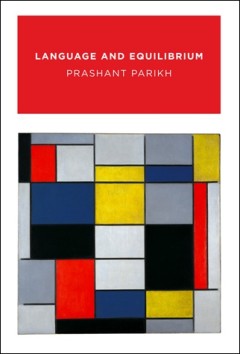
Language and Equilibrium
In this work, Prashant Parikh offers a new account of meaning for natural language. He argues that equilibrium, or balance among multiple interacting forces, is a key attribute of language and meaning and shows how to derive the meaning of an utterance from first principles by modelling it as a system of interdependent games.OCLC-licensed vendor bibliographic record.
- Edition
- -
- ISBN/ISSN
- 9780262281263
- Collation
- 1 online resource (xii, 344 pages) :illustrations
- Series Title
- -
- Call Number
- -
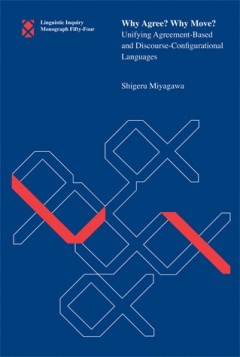
Why Agree? Why Move?: Unifying Agreement-Based and Discourse-Configurational …
An argument that not only do movement and agreement occur in every language, they also work in tandem to imbue natural language with enormous expressive power. An unusual property of human language is the existence of movement operations. Modern syntactic theory from its inception has dealt with the puzzle of why movement should occur. In this monograph, Shigeru Miyagawa combines this question …
- Edition
- -
- ISBN/ISSN
- 9780262259071
- Collation
- 1 online resource (xiv, 182 pages) :illustrations.
- Series Title
- -
- Call Number
- -
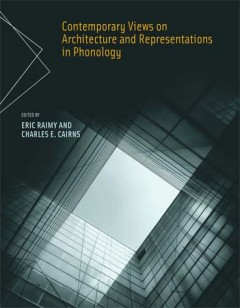
Contemporary Views on Architecture and Representations in Phonology
"A Bradford book.""This volume is the result of the City University of New York (CUNY) Phonology Forum Symposium on Architecture and Representation in Phonology that was held in Manhattan on 20-21 February 2004"--Acknowledgments.The essays in this volume address foundational questions in phonology that cut across different schools of thought within the discipline.OCLC-licensed vendor bibliograp…
- Edition
- -
- ISBN/ISSN
- 9780262255325
- Collation
- 1 online resource (vi, 418 pages) :illustrations.
- Series Title
- -
- Call Number
- -
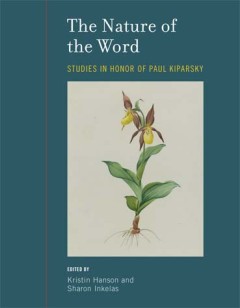
The Nature of the Word: Studies in Honor of Paul Kiparsky
Paul Kiparksy's work in linguistics has been wide-ranging and fundamental. His contributions have influenced virtually every field of contemporary linguistics, from generative phonology to poetic theory. This is a collection of essays by his colleagues and students.OCLC-licensed vendor bibliographic record.
- Edition
- -
- ISBN/ISSN
- 9780262274890
- Collation
- 1 online resource (xvi, 750 pages) :illustrations.
- Series Title
- -
- Call Number
- -
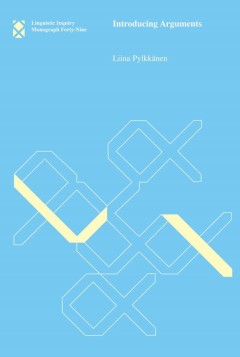
Introducing Arguments
This compositional theory of verbal argument structures explores how 'noncore' arguments (i.e. arguments that are not introduced by verbal roots themselves) are introduced into argument structure, and examines cross-linguistic variation in introducing arguments.OCLC-licensed vendor bibliographic record.
- Edition
- -
- ISBN/ISSN
- 9780262281980
- Collation
- 1 online resource (xvi, 156 pages).
- Series Title
- -
- Call Number
- -
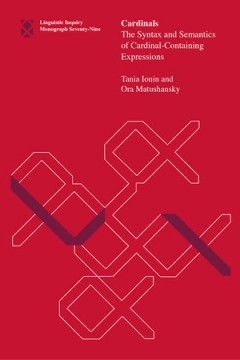
Cardinals: The syntax and semantics of cardinal-containing expressions
"This book provides a semantic and syntactic analysis of nominal expressions containing complex cardinals (e.g., two hundred and thirty-five books), and shows that this analysis accounts for the internal composition of cardinal-containing expressions cross-linguistically, as well as a range of related phenomena. While there is much prior linguistic literature on numerals, this literature has no…
- Edition
- -
- ISBN/ISSN
- 9780262349000
- Collation
- 1 online resource.
- Series Title
- -
- Call Number
- -
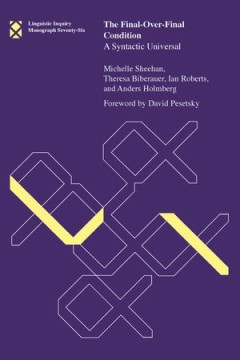
The final-over-final condition: A syntactic universal
An examination of the evidence for and the theoretical implications of a universal word order constraint, with data from a wide range of languages. This book presents evidence for a universal word order constraint, the Final-over-Final Condition (FOFC), and discusses the theoretical implications of this phenomenon. FOFC is a syntactic condition that disallows structures where a head-initial phr…
- Edition
- -
- ISBN/ISSN
- 9780262342018
- Collation
- 1 online resource (464 pages).
- Series Title
- -
- Call Number
- -
 Computer Science, Information & General Works
Computer Science, Information & General Works  Philosophy & Psychology
Philosophy & Psychology  Religion
Religion  Social Sciences
Social Sciences  Language
Language  Pure Science
Pure Science  Applied Sciences
Applied Sciences  Art & Recreation
Art & Recreation  Literature
Literature  History & Geography
History & Geography